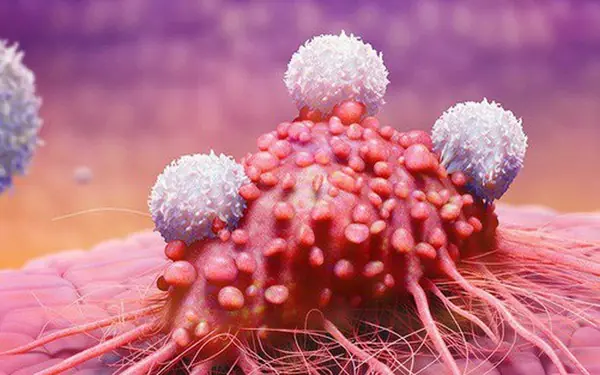
Can I Get My Metabolism Back After Stopping Lexapro and Prozac?
🔄 Reclaiming Your Metabolism After Stopping Lexapro or Prozac
If you've recently stopped taking antidepressants like Lexapro (escitalopram) or Prozac (fluoxetine), you might be wondering how to restore your metabolism—especially if you experienced weight gain while on these medications. The good news? Your body is resilient, and with the right strategies, you can support your metabolic health and feel more energized.
🧠 Why SSRIs Affect Metabolism
Lexapro and Prozac belong to a class of drugs called selective serotonin reuptake inhibitors (SSRIs). These medications increase serotonin levels in the brain, which helps regulate mood—but serotonin also plays a role in appetite and metabolism. While the exact mechanism isn’t fully understood, many people report weight gain during SSRI treatment.
Expanded Insight: SSRIs may alter hunger cues, reduce physical activity due to fatigue, or change how your body stores fat. These effects can linger even after discontinuation, making it important to take a holistic approach to recovery.
🛑 Stopping Safely
Never stop antidepressants abruptly. Tapering off under medical supervision helps your body adjust and reduces withdrawal symptoms like dizziness, insomnia, and mood swings.
Extra Tip: During the tapering phase, some people naturally lose weight as their appetite and energy levels normalize. However, others may need to actively support their metabolism through lifestyle changes.
🍽️ Diet Strategies to Boost Metabolism
Your metabolism thrives on consistency and quality. Here’s how to nourish it:
-
Eat Enough: Severely restricting calories can slow your metabolism. Instead, aim for regular meals and snacks to keep your energy steady.
-
Focus on Thermogenic Foods: These require more energy to digest, helping raise your metabolic rate. Include:
-
Lean proteins: chicken, fish, tofu, legumes
-
Whole grains: quinoa, oats, brown rice
-
Fiber-rich fruits and vegetables
-
-
Stay Hydrated: Dehydration can reduce metabolic efficiency.
-
Use Caffeine Wisely: Moderate caffeine intake (from coffee or green tea) can temporarily boost metabolism.
Expanded Tip: Consider adding metabolism-supporting spices like cayenne pepper, ginger, and turmeric to your meals. These ingredients may enhance fat oxidation and digestion.
🏋️♀️ Exercise That Works
Muscle burns more calories than fat—even at rest. Strength training is key to revving up your metabolism.
-
Start with Resistance Workouts: Use weights, resistance bands, or bodyweight exercises like squats and push-ups.
-
Incorporate High-Intensity Interval Training (HIIT): Short bursts of intense activity followed by rest periods can elevate your metabolic rate for hours.
-
Stay Consistent: Aim for at least 150 minutes of moderate exercise per week, plus two strength sessions.
Expanded Insight: Don’t underestimate daily movement. Walking, stretching, and even household chores contribute to your overall calorie burn and metabolic health.
😴 Sleep and Stress Matter Too
Sleep deprivation disrupts hormones that regulate hunger and metabolism. Aim for 7–9 hours of quality sleep each night.
-
Create a Sleep Routine: Go to bed and wake up at the same time daily.
-
Limit Screens Before Bed: Blue light interferes with melatonin production.
-
Manage Stress: Chronic stress elevates cortisol, which can slow metabolism and increase fat storage.
Bonus Tip: Mindfulness practices like meditation or yoga can help regulate stress and support hormonal balance.
🧑⚕️ When to Seek Help
If you're struggling to lose weight or feel your metabolism hasn’t bounced back, consult your doctor or a registered dietitian. They can help tailor a plan based on your medical history and current needs.
Expanded Advice: You might benefit from lab tests to check thyroid function, insulin sensitivity, or nutrient deficiencies—all of which can impact metabolism.
✅ Final Takeaway
While SSRIs like Lexapro and Prozac can affect metabolism, recovery is possible. By focusing on balanced nutrition, regular exercise, quality sleep, and stress management, you can restore your metabolic health and feel more like yourself again.
News in the same category


If You See Someone with Prominent Green Veins, Make Sure to Tell Them This – It Could Save Their Life

How to Safely Remove Super Glue (502) from Your Skin Without Tearing It

3 Unusual Signs in the Neck That Could Be Symptoms of Cancer – Don’t Ignore Them!

Consciousness Is Not Confined to the Brain, But Is Connected To The Whole Universe, Scientists Say

Study Finds People With ADHD Listen to Music Differently—Here’s How

8 Foods High in Inulin to Eat for Better Gut Health

Proven Health Benefits and Uses of Thyme and Thyme Tea

Proven Health Benefits of Walnuts, How Many to Eat, and More (Science Based)

How Can Europe Reduce Heat Deaths Amid Rising Temperatures?

SARS-CoV-2 Infection Tied to Early Vascular Aging

These Foods Cause Insomnia

How To Get Rid of Phlegm And Mucus

Most people eat these 7 meats daily — here’s why you shouldn’t

1 herb being called a miracle for liver, blood sugar, and blood pressure

Dr. Nick Norwitz Eats Over 700 Eggs in a Month to See What Happens

Elon Musk unveils new AI project that could recreate Microsoft’s entire business operations

Do Not Ignore These 10 Warning Signs That Your Kidneys May Be In Danger

If Your Body Suddenly Jerks While Falling Asleep, This Is What It Means
News Post

White Tongue …What It Means and What You Can Do About It

Why Liver Cancer Is Often Detected Late – Important Warning Signs You Shouldn’t Ignore

Tips for Selecting High-Quality Eggs

If You See Someone with Prominent Green Veins, Make Sure to Tell Them This – It Could Save Their Life

How to Safely Remove Super Glue (502) from Your Skin Without Tearing It

The Mystery of the Milk Bottle Dent

Think Twice Before Putting Parchment Paper in the Oven

3 Unusual Signs in the Neck That Could Be Symptoms of Cancer – Don’t Ignore Them!

Consciousness Is Not Confined to the Brain, But Is Connected To The Whole Universe, Scientists Say

Study Finds People With ADHD Listen to Music Differently—Here’s How

Dubai Princess Who Divorced Husband on Instagram Now Engaged to Rapper French Montana
In a twist that has stunned royal watchers and the entertainment world alike, Dubai’s Princess Sheikha Mahra—who publicly divorced her husband via Instagram—has reportedly become engaged to Moroccan-American rapper French Montana. The news comes jus

Military sleep method is 96% successful and will send you to sleep in two minutes
Struggling to sleep? A viral “military sleep method” promises to send you into slumber in just two minutes. With a 96% success rate, it’s being hailed as a game-changer for insomniacs and restless minds alike.

Exactly what happens to your body if you contract chikungunya virus as China enforces 'forceful pandemic measures
Just as the world is still grappling with the lingering effects of COVID-19, a new viral threat has emerged. China is now battling a fast-growing chikungunya outbreak, enforcing strict pandemic-style measures to contain the mosquito-borne disease.

Man contracted life-threatening infection and almost lost an arm after sleeping in bed with his dog
What started as a harmless night sharing a bed with his pet turned into a nightmare. An Australian man contracted a rare, life-threatening bacterial infection after his dog accidentally bit him in his sleep, leaving him close to death and with lasting hea

Google issues warning to billions of Gmail users amid dangerous new scam
Billions of Gmail users are being warned of a dangerous new wave of cyberattacks. Google has confirmed that a notorious hacker group is actively exploiting a massive data breach to infiltrate accounts and extort victims.

Billionaire shares plan for $20 million sub voyage to Titanic site to prove industry is safer after OceanGate disaster
One year after the Titan sub disaster claimed five lives, a billionaire is betting $20 million on a daring new voyage to the Titanic wreck. His mission: prove to the world that deep-sea exploration can be safe.

Masterful Painting Of Jesus By 8-Year-Old—Says She Saw The True Face Of Jesus
At just eight years old, Akiane Kramarik stunned the world by painting what she believed was the true face of Jesus. After being lost, hidden, and nearly forgotten for 16 years, her masterpiece “Prince of Peace” has finally returned to the light—alo

Urgent warning issued to travelers as China takes ‘covid measures’ after reporting 7,000 cases of Chikungunya virus
Following guidance from the World Health Organization, China is focusing on mosquito control as the most effective method to prevent further spread.

US man accidentally buys entire street for $5,000 after thinking he was purchasing vacant lot
An Ohio man thought he had struck a bargain at a county auction. But his dream investment quickly spiraled into a nightmare when he discovered he now owned an entire street by mistake.